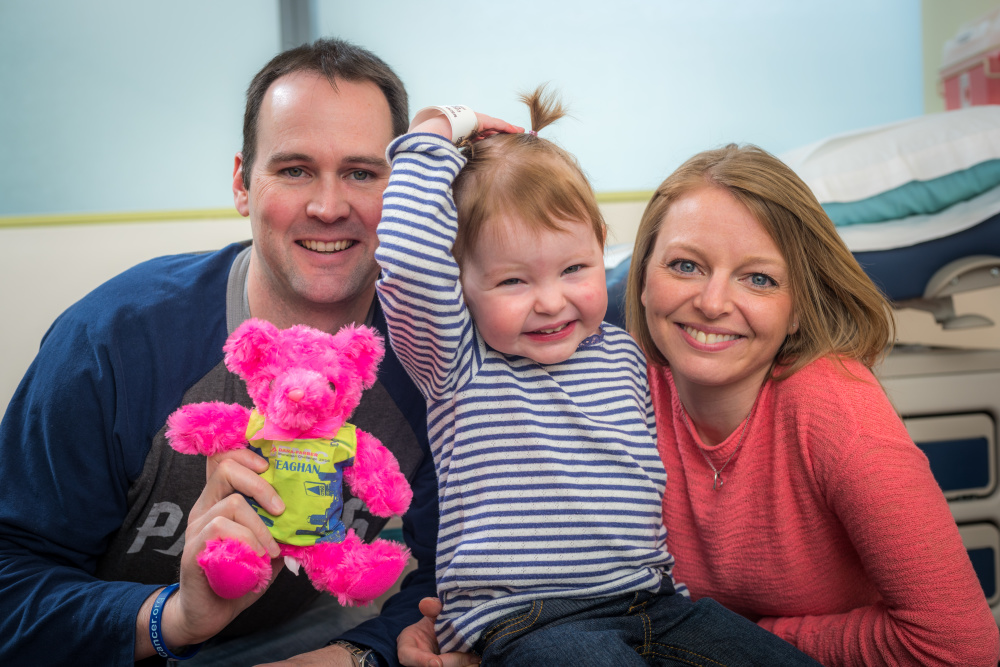 When you learn your child has cancer, the natural response is to do anything possible to make them happy. However, it is important to balance this desire to comfort with an understanding of what is in your son or daughter’s best interest. This is especially true when your child with cancer exhibits difficult behaviors.
When you learn your child has cancer, the natural response is to do anything possible to make them happy. However, it is important to balance this desire to comfort with an understanding of what is in your son or daughter’s best interest. This is especially true when your child with cancer exhibits difficult behaviors.
“Even as your child and family are going through this incredibly stressful time, it is imperative that you maintain your parental role,” says Brian Delaney, PsyD, a senior psychologist in the Division of Pediatric Psychosocial Oncology at Dana-Farber/Boston Children’s Blood and Cancer Disorders Center. “Give yourself time to accept the realities of your child’s’ medical situation, but feel confident in trusting your instincts about the behaviors you want to maintain, and those that you are more willing to let go.”
Delaney, who has worked with pediatric patients and families at Dana-Farber/Boston Children’s for 16 years, offers these tips on dealing with the behavioral problems sometimes brought on by a child’s cancer diagnosis:
Focus on the positive. It’s easy to respond to bad behavior, but a healthier, more preventative approach is to emphasize and reinforce the positive things your kids are doing. If they are having trouble going to bed, remind them about the many nights they have been able to sleep independently – and tell them you know they can make it through the night. Recognize how brave they are being during treatment and point out all the ways in which they are being strong.
Expect developmental regression. Children under the stress of cancer often regress to previous behaviors or coping methods. An adolescent in treatment may resent the fact she is suddenly more dependent on her parents, while a younger child may become more clingy and unwilling to socialize with peers. These reactions are normal; try to create a space to accommodate them and not be judgmental. Don’t worry about maintaining the rigid developmental milestones you may have had for your child before, and try to encourage coping skills to help them feel better.
In returning to school, focus first on peer connections. Working with your care team and school administrators, make a back-to-school plan with modified educational goals. Maintain school attendance as much as possible, but if your child can’t go for the whole day, try one or two hours or some other modified schedule. Maintaining the appropriate developmental and social connection with school can often be more important initially than academic success. You can address schoolwork through tutoring, but the big issue early on should be on getting back on track socially with peers and the routine of school attendance.
Read more:
Let kids play a part in their own care. Hearing age-appropriate information about their cancer and treatment can help alleviate their worries, accept the limitations of their diagnosis, and increase their capacity to connect with the normal parts of their lives.
Make time for siblings. Sometimes behavioral issues with siblings are rooted in the fact that the patient is getting more attention than they are. Setting up a fun activity for your other child (or children) helps some of these feelings, as does involving siblings in the patient’s care. The more siblings know, the less worried they are going to be – and the less behavioral disruption will result.
Pick your battles. Discuss and prioritize the behaviors you want to emphasize. Know that when you don’t prioritize certain behaviors, you’re going to have to live with the results. Maybe you can accept a messy room, but you won’t tolerate rudeness and disrespectful backtalk.
Adapt to treatment patterns. Pay attention to your child’s sleep pattern and medications, and discuss with team members the way these things may be contributing to behavioral changes. For instance, a kid on steroids may have mood swings and some sleep problems, and being able to anticipate that will help you understand when to have things ready to calm them down.
Take time for parental self-care. Kids react to parental stress, and so taking care of yourself and addressing your own stress has a direct effect on your child’s anxiety level and behavior.
“The challenges may change over time,” says Delaney, “but keeping life as normal as possible for your children is always the best approach.”
